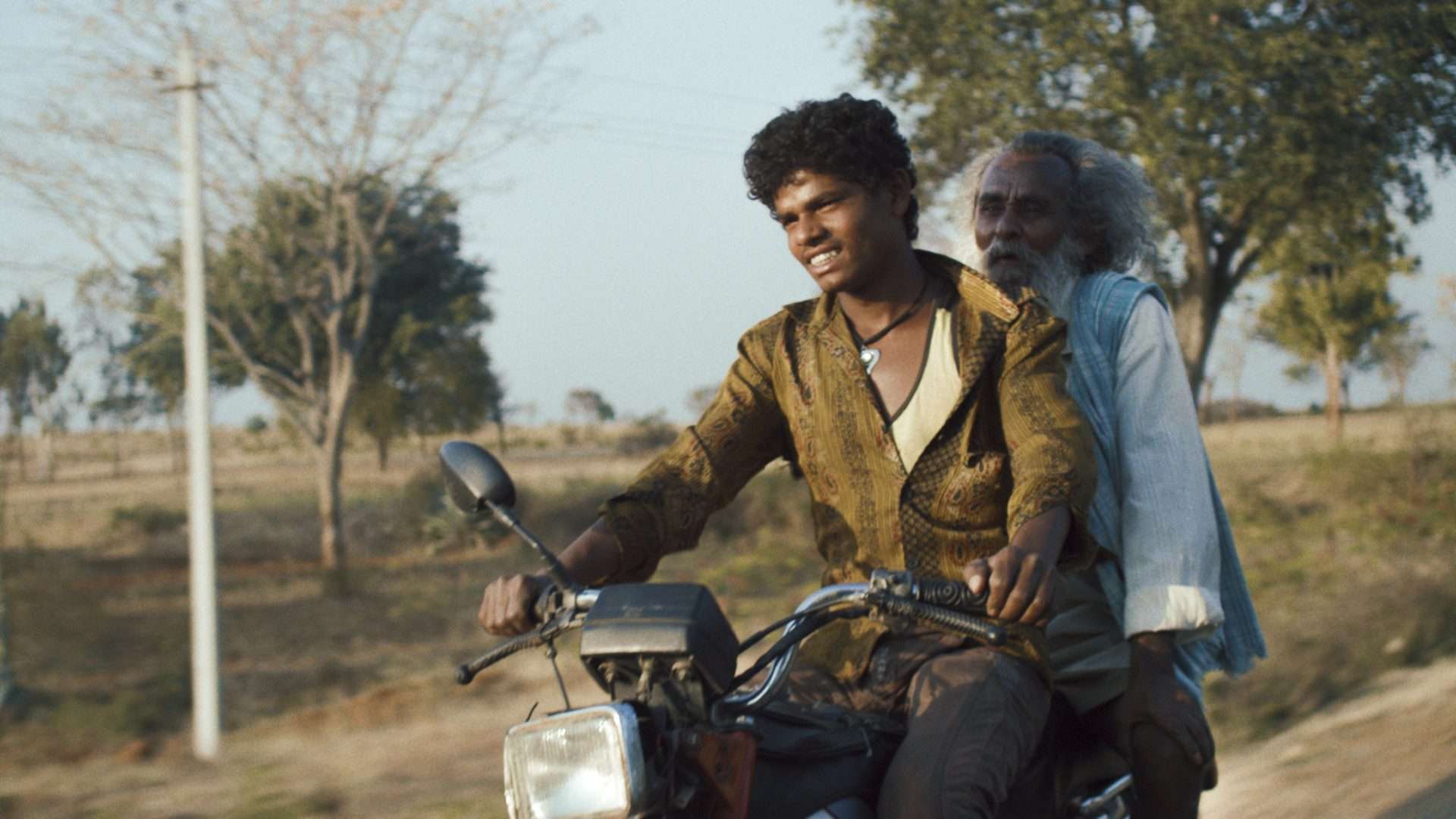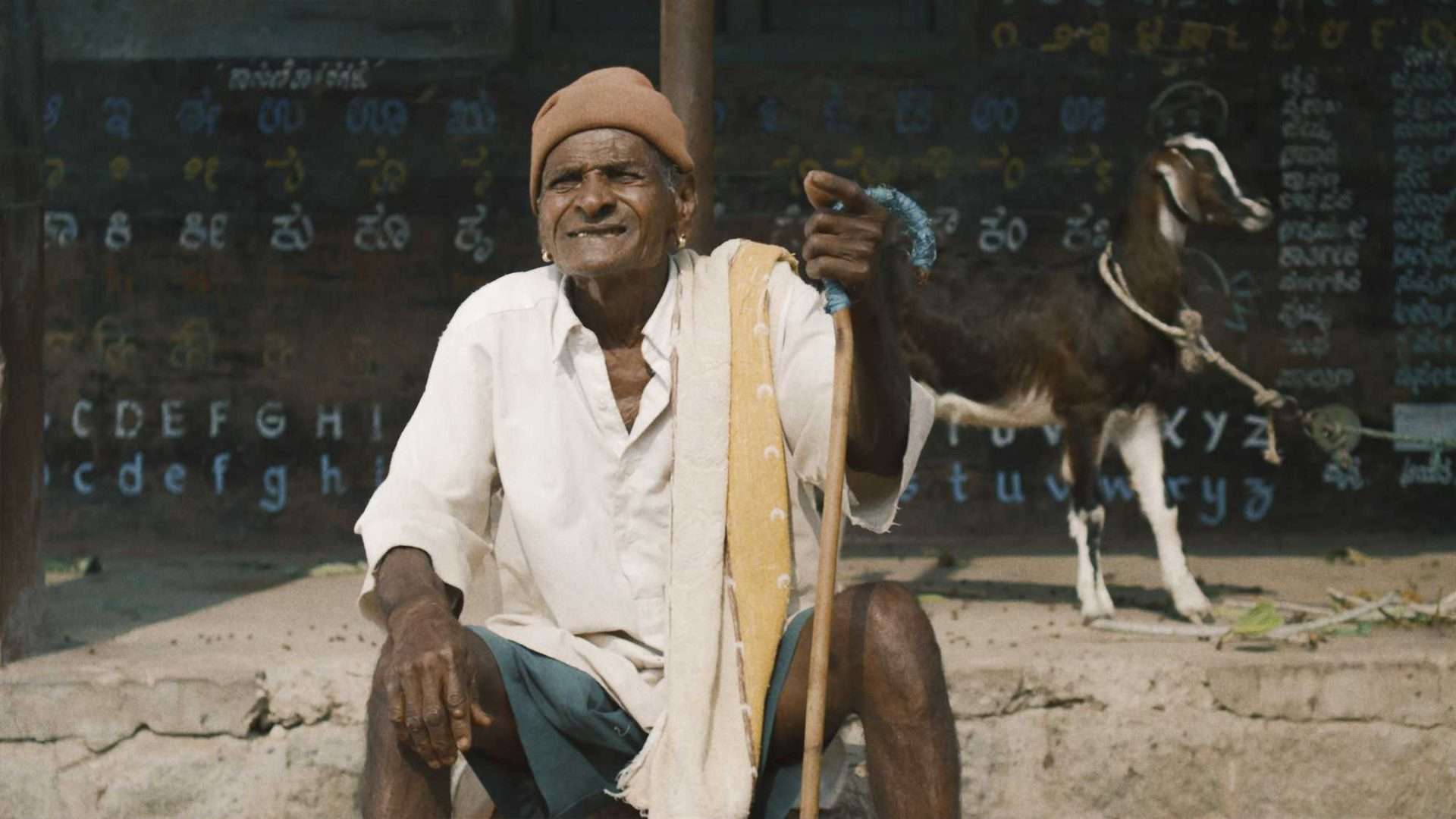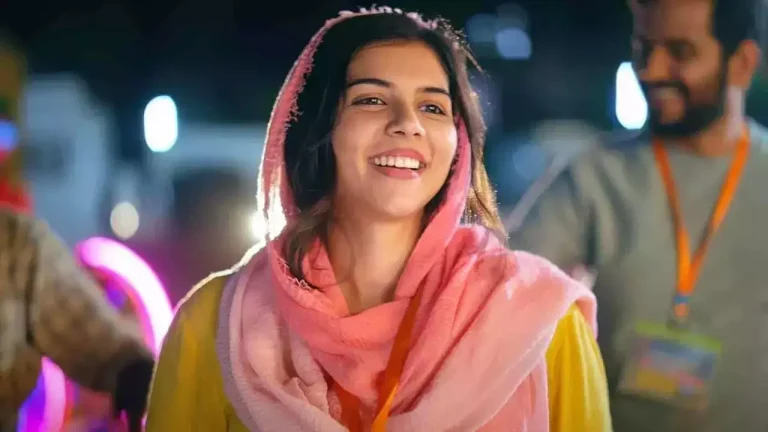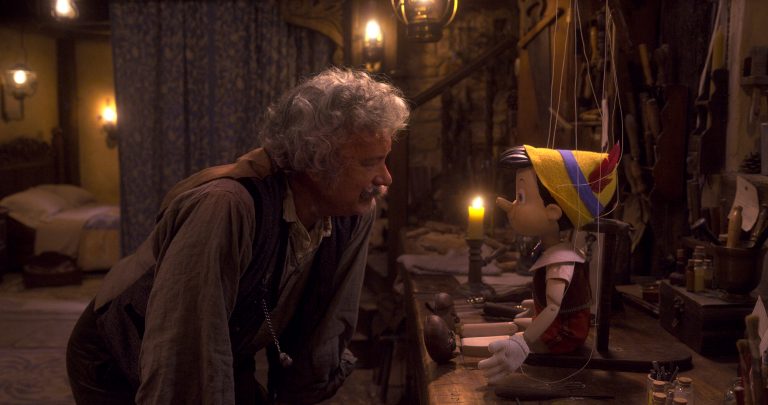Review by Nafees Ahmed
Raam Reddy’s Thithi opens on Century Gowda (Singri Gowda), an elderly patriarch who derives the fancy name ‘Century’ because of his longevity of more than 100 years, who is seen sitting on a stoop and trolling every local passerby. Reddy’s camera stays still on him, studying the peculiarity of the character and giving enough breathing space to make him rise above just a punchline introductory character, while an incessant spiteful monologue continues, which is jocular but grating.
Suddenly, he drops dead while relieving himself, and sets the film in motion that has dark humor, which organically flourishes into a dramedy of three generations of the ‘Gowda’ clan (son, grandson, and great-grandson). Thithi packs a ton of such amusing characters embroiled in a volcanic familial turmoil that shares the same gene as Anurag Kashyap’s styled characters, minus the violent urges. The narration is funny and whimsical, and flows effortlessly off the screen.
Also Read: All Anurag Kashyap Movies Ranked
Reddy lets all three principal characters grow on their virtues, rather than manipulating them for mere dramatic pleasure. The plot centers around the three men of the Gowda family whose lives take bittersweet turns and twists while elaborately planning for ‘Thithi’ (the funeral feast on the 11th day).
To pay for ‘Thithi’ and pay off his debts, Century’s grandson, Thammana, devises a plan that involves bribery, forgery, and tossing his own father, Gadappa (Son of Century), out of the village for at least 6 months by luring him into a countrywide trip. Thammana may seem greedy and materialistic, but he comes across as the most rational character on the screen, and you empathize with him.
Gadappa, on the other hand, is non-materialistic, aloof, and an obsessive ‘Tiger Brandy’ drinker who wanders around the village looking for his own space. He is unmoved by his father’s death and says, “It’s fine, no big deal.” Until, in one of the most powerful monologues, Gadappa casually, like a tale, reveals the reason for his asperity towards his family.
The only problem, which of course I am nitpicking, I see is with the half-baked, sloppy subplot of Abhi (The great-grandson of Century Gowda ). Teenage Abhi is less concerned with the ongoing madness in his village, and he courts a pretty shepherdess. Now, the subplot of Abhi reflects perfectly the temperament of a teenager and is well written, except for one cringeworthy and unnecessary sex scene (because you don’t see anything but just get to hear the moaning sounds), but it never adds any value to the central conflict. It never gels organically with the whole cynical madness of the villagers’ preparation for ‘Thithi’.
Even the climactic confrontation between Thammana and Gadappa ends on an uncomplicated note, conveniently paving a path for an easy reconciliation given their contrasting ideologies that earlier generated insurmountable heat.
But, Reddy has microscopic views of his characters, which originate from the roots of South Indian villages, and they fill up the screen with such honest performances despite the cast being comprised of non-professional actors(except for two), that the lack of a more complex resolution to the story’s conflicts seems less of an offense. They are real, and they seem not to follow any script, rather real characters reacting and following their head and mind (if any).
Review by Suvo Pyne
Once, Satyajit Ray’s widely regarded masterpiece “Pather Panchali” met the criticism of ‘Selling Poverty’ to urban audiences. Quite a handful of Indians criticized it, citing that it depicts the poor class of India to cater to the sentimentalism of Western audiences. Even Francois Truffaut wasn’t a taker of neorealism of peasants. However, when the rich were depicted on screen, full of arrogance and debauchery, there was hardly any uproar.
In this context, the popular television series “Game of Thrones” had a thought through one of its characters who says that the only reason the poor repel us is that they show us who we truly are without all earthly attachments, tangible and intangible. Raam Reddy’s “Thithi” gives us a character that symbolizes the detachment I am talking about. First, let’s see what the film is about. ‘Thithi’ is a Kannada word that refers to the ritual that is performed after the death of a person, post-cremation. ‘Century’ Gowda, named understandably for the 100 years he lived, dies and leaves his descendants in quite a fix.
Gadappa, the eldest son of Century, is one aimless cloud, drifting hither and thither. It is his aloofness towards anything materialistic that provides the poignancy in the film. Thamanna, on the other hand, is in complete contrast with his father Gadappa. He’s the representative of the common people who could be seen in any rural part of India. Thamanna is pragmatic in his approach to making ends meet. He figures that selling the acres of land that had previously been a property of Century would vastly improve his and his family’s financial position.
Similar to Thithi: C/o Kancharapelam (2018): When Hope and Despair Marry Each Other
Thamanna’s adolescent son, Abhi, helps his father in organizing his great grandfather’s ‘Thithi,’ the ceremony to which the whole village would be invited. Alongside, he has his own shenanigans to do. Through the eyes of these characters, we get a slice of life that is soaked with a purity that is stripped of any facade. But, it is not merely a ‘slice of life’ film, which in itself is a major feat to pull through. The dichotomy between the traits of Gadappa and his son is the vision that drives the film, and Kudos to director Raam Reddy for showcasing that.
Gadappa, in one particular scene, says, “What is meant to happen, happens. No one has control over it. So, it’s better to be just happy,” which by no means is an easy task. His aloofness towards anything mundane is thus a result of his embracing reality and accepting his own place in that. This realization is channeled through Gadappa throughout the film till the final scene. This is the essence of “Thithi.” Another praiseworthy aspect of the writing is that it perfectly captures all the idiosyncrasies and eccentricities that are an integral part of village life. The tone of the film is quite balanced by that.
Like the film I mentioned at the very beginning of this review, “Pather Panchali,” the cast of this film is also largely comprised of essentially nonactors;, and these nonactors bind the film together. Channegowda and Thammegowda deliver outstanding performances as the two protagonists, Gadappa and Thamanna, and bring depth and authenticity to their roles. Cinematographer Doron Tempert deserves praise for beautifully capturing the village’s earthy essence, perfectly harmonizing with the film’s tone. “Thithi” is a remarkable piece of cinema and part of a breed of regional Indian films that are rich in soul and quality, unlike most of their counterparts in Bollywood.





![Margaret [2011] Review: A real coming-of-age drama](https://79468c92.delivery.rocketcdn.me/wp-content/uploads/2019/03/thenewyorker_movie-of-the-week-margaret-768x432.jpg)

![Sex, Love, Misery: New New York [2022] Review – An unfiltered look at the dating scene in the city](https://79468c92.delivery.rocketcdn.me/wp-content/uploads/2022/06/Sex-Love-Misery-New-New-York-1-768x415.jpg)


![Fires on the Plain [1959] Review – A Potently Realistic Vision of War’s Devastating Impact on the Human Soul](https://79468c92.delivery.rocketcdn.me/wp-content/uploads/2020/07/Fires-on-the-Plain-1959-768x537.jpg)